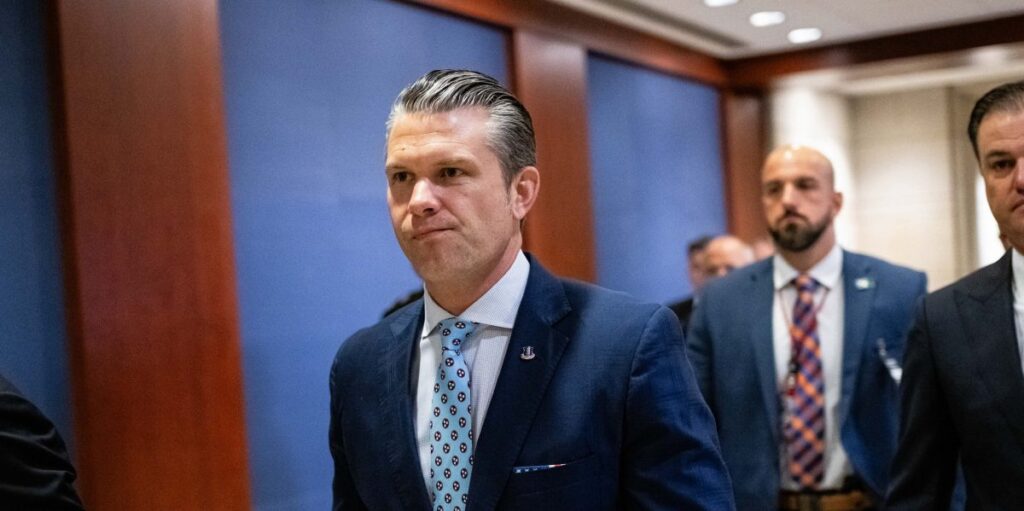
In a heated Pentagon press conference on Thursday, Secretary of Defense Pete Hegseth launched a scathing critique of the media for not aligning with the Pentagon’s narrative on recent U.S. military actions against Iran. Hegseth, visibly frustrated, accused journalists of failing to support President Donald Trump and urged them to “wave an American flag” in their reporting.
The contentious briefing centered around U.S. airstrikes on Iranian nuclear facilities, which President Trump claimed had “obliterated” the sites. However, skepticism about these assertions has emerged from both current and former defense officials. Reports from multiple media outlets, including a preliminary Defense Intelligence Agency (DIA) assessment, suggest the strikes only temporarily set back Iran’s nuclear program.
Media Criticism and Historical Parallels
Hegseth’s remarks echoed past instances where the Pentagon has sought more favorable media coverage in the name of patriotism. He accused the press of “cheering against Trump” and manipulating public perception with “half truths” and “leaked information.”
Historically, the relationship between the U.S. government and the media has been fraught during times of military conflict. During the Vietnam War, Presidents Lyndon Johnson and Richard Nixon both expressed frustration with media coverage that highlighted the challenges and failures of the war effort. Johnson once told reporters, “I can prove that Ho Chi Minh is a son-of-a-bitch if you let me put it on the screen,” while Nixon famously declared, “Our worst enemy seems to be the press!”
Public Opinion and Political Implications
Hegseth’s call for more patriotic reporting comes amid widespread public disapproval of the U.S. strikes on Iran. A CNN/SSRS poll conducted after the strikes revealed that 56 percent of Americans disapprove of the military action, with 58 percent believing it will increase the threat from Iran. Similarly, a Quinnipiac University poll showed only 39 percent of Americans approve of Trump’s handling of the Israel-Iran conflict.
Senator Chris Murphy, D-Conn., expressed doubts about the effectiveness of the strikes, stating, “To me, it still appears that we have only set back the Iranian nuclear program by a handful of months.” He added that while there was damage, the claims of obliteration “just don’t seem to stand up to reason.”
Leaks and Internal Investigations
Hegseth’s antagonism towards the media is not new. Since his appointment, he has been vocal about unauthorized leaks, even inadvertently sharing sensitive attack plans with a journalist. His former chief of staff, Joe Kasper, issued a memo threatening criminal prosecution for unauthorized disclosures. The FBI is currently investigating how the DIA report became public.
Former aide Colin Carroll noted that Hegseth’s team is “consumed” by leak investigations, stating, “If you look at a pie chart of the secretary’s day, at this point, 50 percent of it is probably a leak investigation.”
Calls for Media Patriotism
At the press conference, Hegseth urged the media to celebrate American military achievements, highlighting the challenges faced by U.S. pilots and air defenders. He criticized the press for focusing on negative aspects and urged them to recognize the “success of our warriors.”
Despite his appeals, Hegseth acknowledged the ongoing tension with the media, stating, “How about we talk about how special America is, that we — only we — have these capabilities? I think it’s too much to ask, unfortunately, for the fake news.”
The Pentagon has not provided further clarification on Hegseth’s views regarding media coverage, leaving questions about the future relationship between the press and the Department of Defense.






